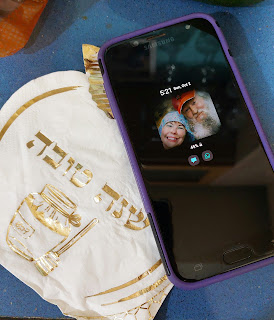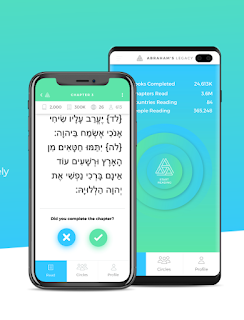"God gathered the scattered of Israel and freed its prisoners at the right time of year." ~ Tehillim 68:7
Today
would have been my father’s 84th birthday.
 |
| My father and me |
He and my
mother parted ways before I turned three… and I never saw him again – until last
year.
I did
research over the years, hoping to meet him. I found his social security
number, his mother’s maiden name, his US army record… eventually, I found out
that he had died at the too-young age of 53. My information pretty much stalled
out there for several years.
Then a miracle
of modern science presented itself. I signed onto Ancestry.com and did the DNA
test in hopes of finding out more about my father’s side of the family. I found a few links to family tree builders on my mother’s side,
but nothing about my father. Then Ancestry.com offered its annual half-price sale for
full access for six months. With a certain amount of trepidation (because it
was costly, even at half-price), I asked the Dearly Beloved if I could indulge. Of course, being the Dearly Beloved, he said yes. I signed up, and
spent the night in self-recriminating dreams, wondering what was in my mind, spending all that money for perhaps a clue or two... or maybe nothing.
And then it became morning…
 |
| The photo that started it all |
I logged onto
the site and found a photo of my father I’d never seen before. I wrote to the
woman who had posted the photo.
Hi,
Jeanne. My name is Ruth Eastman, and I am Norbert Winston's daughter. I was
delighted to find a photo of him I'd never seen in your file! Can you give me
any other information? Are we related, or was he in some way a family friend?
At 62 years of age, finding even a glimmer of my past is fascinating and
inspiring. I look forward to hearing from you. Regards, Ruth (Ruti) Eastman
Jeanne – the wife of a half-brother I never knew I had – was quick to answer, and we began a lovely correspondence, sharing pictures, memories, small bits of information about Dave’s and my father, about his and my dear mothers, and about our children.
 |
| My brother Dave and my sister-in-law and new best friend Jeanne |
A few days later, I awoke to a very special message:
Dear Ruti, I have a link to something you may be quite surprised and happy to see. Several years ago I found a video record of your Dad speaking of his Holocaust survival. It is quite amazing and was particularly interesting to see how much he looked and gestured like my husband Dave. It is under his nickname Kip Winston and the site is United States Holocaust Memorial.
I think you will be fascinated. Looking forward to future correspondence.
All the best, Jeanne
Jeanne was right. I was and remain fascinated. One Generation After, a Boston-based oral history project conducted by the children of survivors, had interviewed my father. Thanks to Janet Seckel who conducted the interview and the videographer, Wolf Krakowski, I spent an hour and a half with my father, recorded almost exactly a year before he died, listening to him tell his story.
My father was three years old when the war began, and six when he arrived in the States; so most of his impressions of the war are made up of feelings: terror, panic, confusion. But a few memories are clear.
Norosz and his cousin Yanusz were playing in the yard with a pony. Yanusz was a year or two older than Norosz. Suddenly, bombs were being dropped from planes. The mother of Yanusz, Bronya, called out to the boys in a panic to come inside... Norosz ran toward the
house, but Yanusz was slow to respond. A bomb landed on his head and and blew
him up... all over little Norosz.
My father’s memories of those years included bad smells and bodies and looks of hatred on the faces of Poles... “There was a lot of death in the ghetto. I don’t remember a day towards the end, walking outside, when I didn’t see bodies. Then all of a sudden, we started hearing of people being taken away...”
It was January of 1941. Little Norosz and his parents were on a train in a cattle car with about 200 other people, destined for Treblinka. My father was now four years old, and the war, too, was young. When the train tipped over in the snow and Jews began to stream out into the woods, the German soldiers apparently were perplexed. Were they expected to deliver live Jews, or would dead Jews be acceptable? No one wanted to bring down the wrath of the Reich with a bad decision. So they faltered for a few moments before they made the choice and began shooting. Those few moments allowed a brave and decisive man – my grandfather, Samuel Fienjstien – to grab his wife Rita by the arm and his small son Norosz by the hair and save their lives.
“We ran and ran and ran into the woods... it seemed like hours! We marched around for days. I don’t remember how we ate or slept or where, sometimes in barns. We were more afraid of the Poles than of the Germans. The days and hours became weeks... At some point, we found a hunter’s shack... In order to keep people away, my father put out a sign on the shack that said ‘cholera.’ That kept people away. My father was a very clever man,” he smiled proudly.
 |
| My father remembering his father |
“One day a man came to the door – Dr. Braun – who said that perhaps he could help us.” Dr. Braun, a Polish Jew, stayed with the family in the cabin for several days, sharing their food. My father remembered a very significant moment during those few days. In an eerie reprise of the experience he had as a small boy at the beginning of the war, he was playing outside near the cabin when a German plane “decided to use me for target practice. Dr. Braun heard the airplane, saw what was going on, ran out and jumped on top of me and got hit, he caught about four of these slugs in him... they didn’t kill him, but that was the end of our staying in the cabin.” Sam persuaded a farmer to take Dr. Braun to a doctor. They knew this was dangerous, but they knew he would die of his wounds if he didn’t get care.
There is more to the story of my family’s survival and eventual emigration to the United States. But this and one followup story resonate for me, a few days before we observe Holocaust Heroes and Martyrs Remembrance Day.
Twenty years after he was almost strafed by a German war plane, my father ran into Dr. Braun in a Tel Aviv cafe. They renewed their acquaintance, and my grandfather flew from America just to meet the man who had saved his son’s life.
Dave has often wondered where you were and if you are healthy and happy.
Thanks in part to you, lovely lady – my sister! – I am indeed very happy; and thank God, we are healthy.
We are all living through this horrible COVID-19 plague, and I don’t know when we will finally meet in person. But I am so grateful to you for filling a big empty space in my personal history. And I am grateful to God for the friendship with you and my brother and your dear family. May our friendship grow for long, healthy, happy years!
 |
| Some of my family on the Dearly Beloved's 69th birthday -- Photo credit: Micha Paul |
Important postscript: There would only be three people in this photo, if our forebears hadn’t escaped or otherwise survived the Holocaust. Thank you, God, for the amazing gifts You have given us. Sam and Rita, Norbert and Sandra... I know you are all smiling from your places in Heaven. A lot of courage and blessing built a special family. May we continue to make you all proud.



















